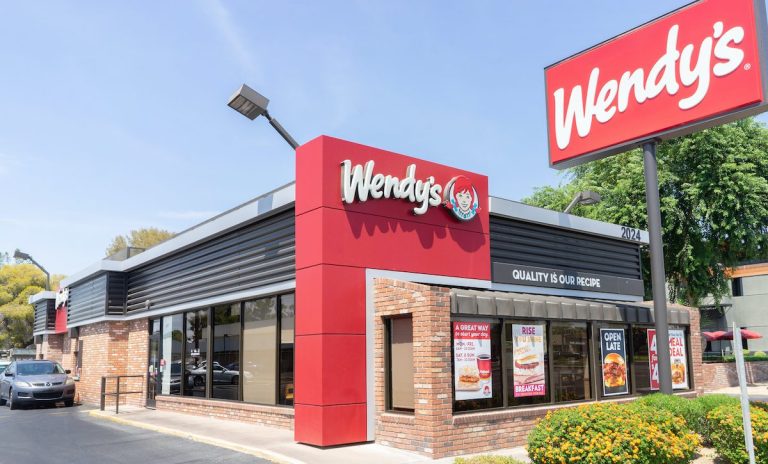Wendy’s Says to Succeed in the Metaverse, Companies Need to Engage With Metaversals

Restaurants’ presence in the metaverse is still too new to say for sure which strategies (if any) will be key to securing customers’ virtual reality (VR) loyalty, but quick-service restaurant (QSR) giant Wendy’s argued in an interview with PYMNTS that the key to success in the space centers on fostering digital communities.
Jimmy Bennett, vice president of media and social at The Wendy’s Company, said communication with users who frequent the virtual spaces is key to brands’ success not only in the metaverse but across digital locations.
“While other brands may enter spaces and unnecessarily distract, disrupt or detract from the experience, we listen, learn and prepare to make sure we always show up to enhance and add value to every interaction with our fans,” Bennet said. “As we’ve seen this community rapidly expand on platforms like Twitch, Discord, TikTok and across multiple gaming verticals, we’re right there with them.”
The brand, which operates about 7,000 restaurants around the world, has been launching a range of branded experiences in Meta’s Horizon Worlds VR platform, including a breakfast-themed obstacle course, a virtual basketball court and most recently a digital ski slope, among others, all under the “Wendyverse” banner.
See also: Wendy’s, Kraft Invest in Metaverse Restaurants
Regular communication with the brand’s customers on these platforms helps the company “stay at the forefront” of these emerging spaces, Bennett said.
By the Numbers
According to data from the July edition of PYMNTS’ Digital Divide study, “Digital Divide: The Move to the Metaverse, created in collaboration with Paytronix, which drew from a May survey of roughly 2,700 United States consumers, nearly one in four have already used the metaverse or reported high interest in doing so. Plus, this share jumped up to four out of 10 Generation Z and millennial consumers.
Read more: Study Shows Restaurants See Metaverse as New Loyalty Play
Most of these consumers were interested in integrating dining experiences into their digital routines. Fifty-four percent of consumers who have already used the metaverse or have a high interest in doing so were “very or extremely interested” in integrating restaurant purchases into their metaverse experiences, and another 19% were somewhat interested.
Moreover, metaverse participants were significantly more likely to engage with restaurants’ loyalty offerings than non-participants, meaning that winning these consumers’ spending could be key to attracting consumers who will come back often and engage with brands’ omnichannel offerings. Seventy percent of metaverse participants and highly metaverse-interested consumers engaged in loyalty programs, compared to just 45% of the overall population.
The Race to the Metaverse
Brands ranging from QSR and fast-casual giants such as McDonald’s and Panera Bread to smaller chains such as New York City’s Bareburger to food companies such as Kraft have made moves toward opening restaurants in the metaverse.
See more: Eateries Open Metaverse Stores in Race to Be the ‘Restaurant of the Future’
In an interview with PYMNTS, Geoff Alexander, CEO of Chicago-based Asian-style restaurant brand Wow Bao, which has hundreds of virtual locations and a handful of brick-and-mortar stores, hinted at an upcoming announcement about the company’s metaverse plans in the weeks ahead.
Read more: Wow Bao Leverages Vending Machines as Restaurants Rethink Self-Service
“There’s a great way to create community; there’s a great way to create loyalty; there’s a great way to create rewards; there’s a great way to create engagement,” he said, “and when we make our announcement for the metaverse, I think we’re going to be able to deliver on all of these different points and do something that has not been done before.”
Trusting the Experts
Wendy’s, for its part, was focused on getting the lay of the land before diving in.
“Our presence in the space is based on our deep-rooted approach to community development: observe before going all in,” Bennett said.
He noted that there is a distinct culture around metaverse engagement and said the best route to success in the space is to lean on those who know it best, collaborating with those who already excel at metaverse engagement rather than coming in solely as an outsider.
Through these efforts, the company can also more effectively drive adoption of its promotions, which in turn gets consumers to engage with Wendy’s eCommerce channels. Most recently, for instance, along with the mid-July launch of Wendy’s Frosty Village in Horizon Worlds, the company offered free fries with a Strawberry Frosty purchase via the Wendy’s app.
“When we started working on the Wendyverse, we identified that the creator culture plays a key role,” Bennett said. “As brands are beginning to engage in this new dimension, it is important to respect the individuals and fans who have been in this space and made it what it is today.”